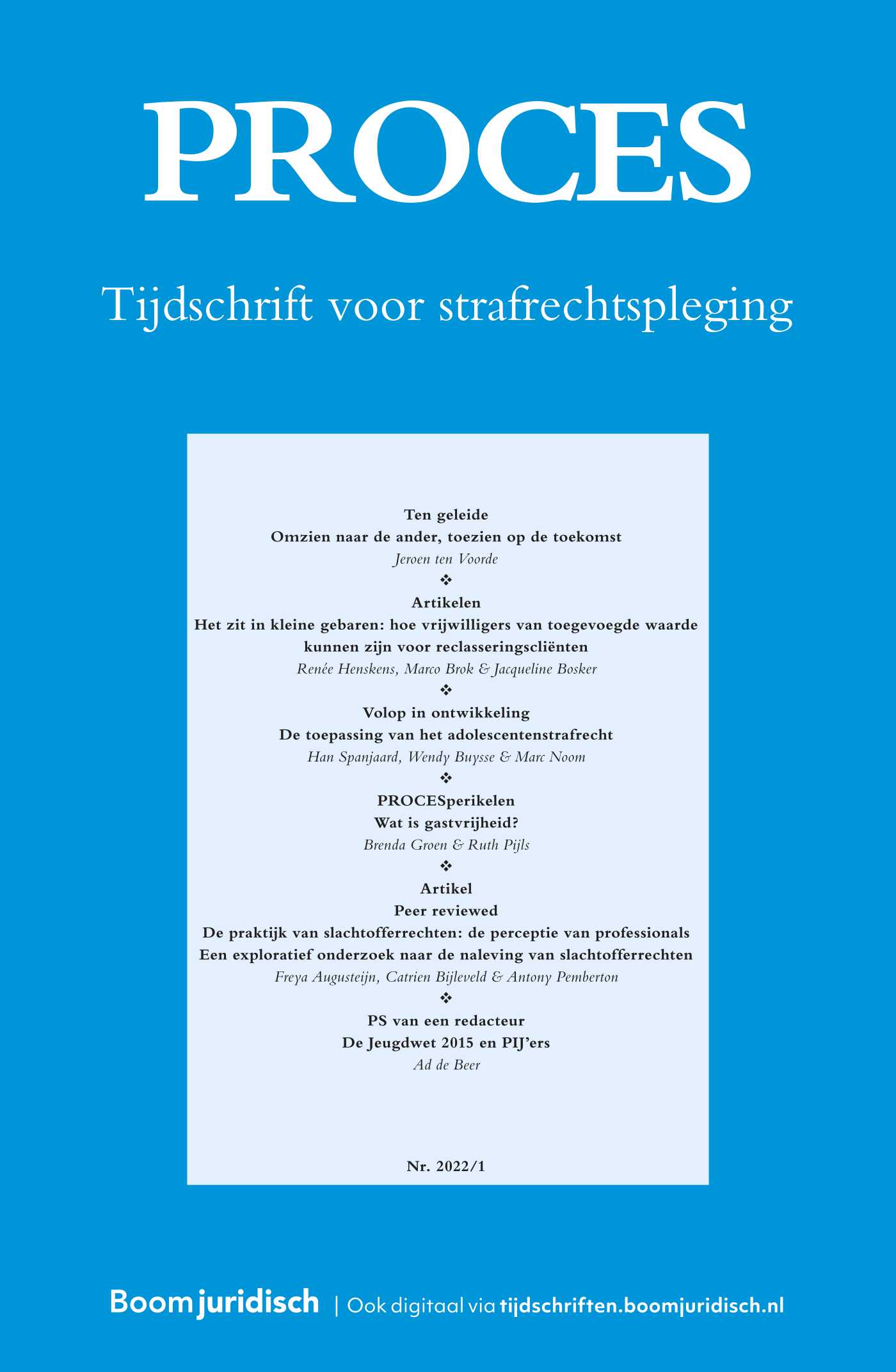|
Crime victims’ compensation is a focal point of interest within the present Dutch penal policy. Coming forward as an injured party, crime victims may claim compensation for pecuniary and non-pecuniary damages from the prepetrator. Since the claim is of a subsidiary, civil nature, the decision making may not represent an undue burden to the criminal procedure. To further compensation, the legal criterion for accessibility was extended (2010) and policy measures were taken. The article provides an overview of the most important findings of an evaluation into to date’s practice, paying special attention to the opinion of legal professionals. Focussing on both the preparatory and the trial phase, a multidisciplinary research was executed, combining quantitative and qualitative research methods. The results show an increase of the amount of claims awarded since 2007. To date, victims’ compensation is commonly accepted within the Dutch criminal procedure. Nevertheless, the legal professionals point at the potential draw backs that sprout from the acknowledgment of the victim as a participant within the Dutch criminal proceedings. |


PROCES
Meer op het gebied van Criminologie en veiligheid
Over dit tijdschriftMeld u zich hier aan voor de attendering op dit tijdschrift zodat u direct een mail ontvangt als er een nieuw digitaal nummer is verschenen en u de artikelen online kunt lezen.
| Redactioneel |
Standpunten over de strafpraktijk in verkiezingsprogramma’s: evidencebased? |
| Auteurs | Mr. dr. Sigrid van Wingerden |
| Auteursinformatie |
| Artikel |
Actuele opvattingen inzake civiel schadeverhaal via het strafproces |
| Trefwoorden | schadevergoeding, voeging benadeelde partij, onevenredige belasting, convergentie strafrecht/civielrecht |
| Auteurs | Dr. Renée Kool en Mr. dr. Jessy Emaus |
| SamenvattingAuteursinformatie |
| Artikel |
‘Buurt Bestuurt Niet’Empirisch onderzoek naar burgerparticipatie in een Rotterdamse achterstandswijk |
| Trefwoorden | CLEAR-Model, security and safety management, CAPS, Rotterdam |
| Auteurs | Marc Schuilenburg |
| SamenvattingAuteursinformatie |
|
In this article, I report on an ethnographic research project conducted in 2013-2015 in Rotterdam’s neighbourhood Hillesluis on ‘Community Governs’, a community-based program which goal is to solve neighbourhood crime and disorder problems. By making use of the CLEAR model, the article focuses on three factors of effective participation of citizens: ‘Enabled to’, ‘Asked to’, and ‘Responded to’. The results indicate that making residents of a deprived neighbourhood responsible for the governing of safety and security issues is extremely difficult. It also becomes clear that the participants don’t believe that their involvement is making a difference in the neighbourhood. An importantly explanation for this is that the participants are not provided enough information to make the right decisions about which safety problems need to be tackled. |
| Praktijk |
Van Binnen naar Buiten |
| Auteurs | Hein Walter |
| Auteursinformatie |
| Artikel |
Radicalisering in MolenbeekBelgisch tweesporenbeleid verhindert integrale aanpak |
| Trefwoorden | Radicalisering, Molenbeek, Belgisch tweesporenbeleid |
| Auteurs | Prof. Elke Devroe en Prof. dr. em. Paul Ponsaers |
| SamenvattingAuteursinformatie |
|
Radicalization in Molenbeek; Belgian dual policy obstructs integrated approach Belgisch tweesporenbeleid verhindert integrale aanpak |
| Artikel |
Het EVRM en een strafbaarstelling voor overtreding van een visumsysteem in de strijd tegen het terrorisme |
| Trefwoorden | Terrorismebestrijding, Visumstelsel, FTF, Mensenrechten |
| Auteurs | Ernesto M.J. Lentze |
| SamenvattingAuteursinformatie |
|
A visa system covered by criminal law could adequately confront the current issues surrounding terrorism and in particular Foreign Terrorist Fighters (FTF’s). Classical legal research demonstrates that the idea of creating a criminal offense for breaching this visa system does not conflict with relevant human rights parameters of the European Convention, except in cases where journalists or non-journalists with a strong civil expression would be prevented to undertake obvious journalistic activities. The latter differs during a state of emergency, but this is undesirable given the fundamental role of freedom of expression within democratic constitutional societies. |
| Column |
Een politiek proces? |
| Auteurs | Prof. dr. mr. Jeroen M. ten Voorde |
| Auteursinformatie |
| Diversen: Diversen |
PROCES Auteursregister 2016 |
| Diversen: Diversen |
PROCES Chronologisch register 2016 |
